Need Anaheim chile substitutes? Here are the top 5 options ranked by heat level and best uses: Poblano (mild, smoky), Jalapeño (spicy), Cubanelle (very mild), Bell Pepper (no heat), and Guajillo (dried, fruity). Use this guide to match heat, flavor, and cooking needs instantly.
Below is a quick comparison table. Scroll down for detailed usage tips, dish-specific recommendations, and FAQs.
| Pepper | Heat Level (SHU) | Flavor Profile | Best Use |
|---|---|---|---|
| Poblano | 1,000–2,000 | Earthy, smoky, rich | Stuffed chiles, soups, sauces |
| Jalapeño | 2,500–8,000 | Grassy, crisp, slightly nutty | Salsas, nachos, pickling |
| Cubanelle | 100–1,000 | Peppery, citrusy, sweet | Sautéed dishes, salads, light salsas |
| Bell Pepper | 0 | Crunchy, sweet, vegetal | Vegetable dishes, roasting, stuffing |
| Guajillo | 2,500–5,000 | Dried berry notes, tea-like finish | Rubbed meats, marinades, mole sauces |
Table of Contents
- Why Substitute?
- Top 5 Anaheim Chile Substitutes
- Spice Level Comparison
- Best For Different Dishes
- Buying Guide
- Cooking Tips
- FAQs
- Conclusion
Why Substitute?
While Anaheim chiles are beloved for their versatility, they're not always easy to find — especially if you're cooking outside peak growing seasons or don't live near specialty markets. Additionally, some cooks may want a spicier kick or a deeper flavor profile than what the Anaheim provides.
Luckily, there are several fantastic options that can fill in nicely depending on your needs:
- You ran out of Anaheim chiles
- Your local store doesn't carry them
- You want more or less heat
- You're looking for a unique flavor twist
Top 5 Anaheim Chile Substitutes
1. Poblano – The Rich and Smoky Stand-In
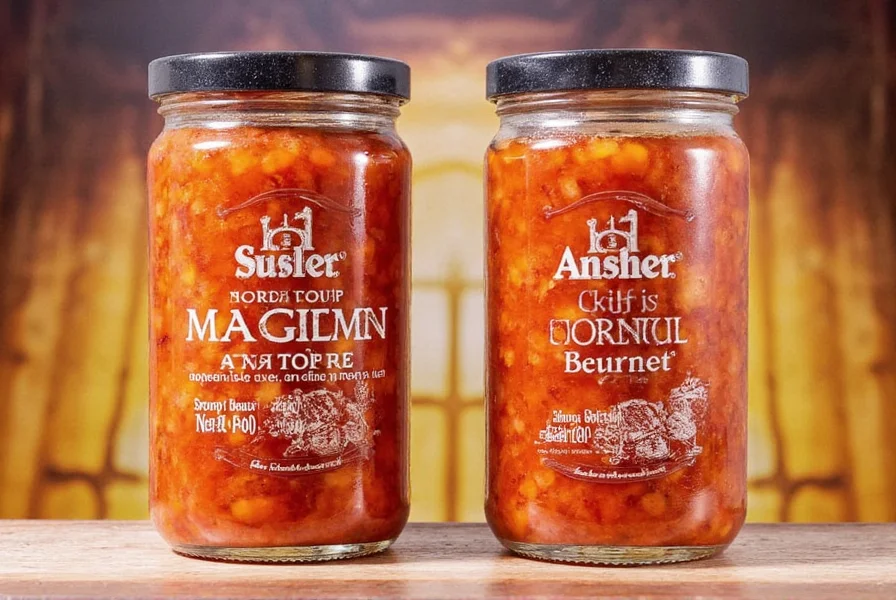
Poblanos are probably the most popular choice when substituting for Anaheim chiles. They share a similar mild-to-medium heat level and hold up beautifully when stuffed, roasted, or blended into sauces. Their earthy flavor with hints of smoke makes them ideal for dishes like chiles rellenos, enchiladas, or tamales.
2. Jalapeño – A Spicier Upgrade
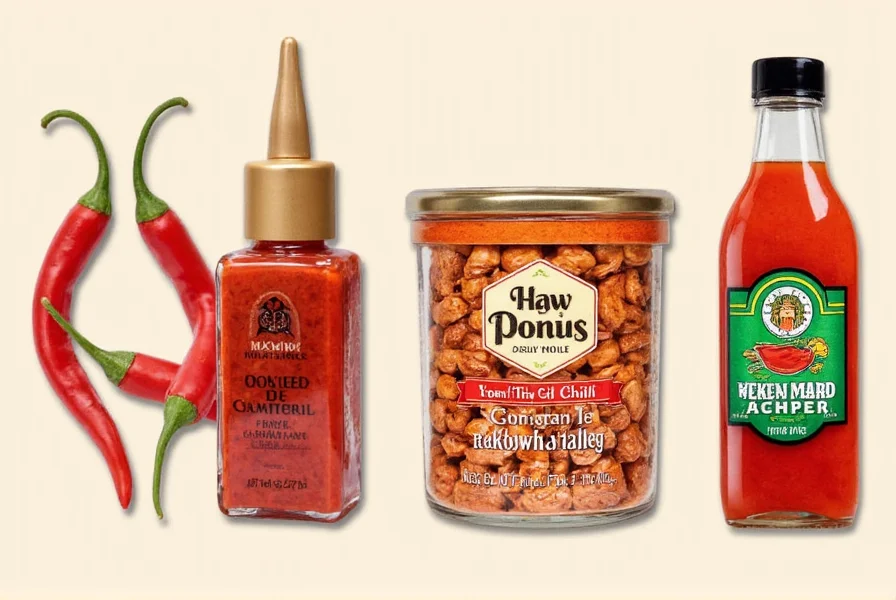
If you're looking to add a bit more zing to your dish, jalapeños are a great option. With double the heat of an Anaheim (and sometimes more), they offer a clean, fresh flavor with subtle nuttiness. Perfect for slicing into tacos, chopping into pico de gallo, or roasting for a smoky salsa.
3. Cubanelle – Mild & Peppery Twist
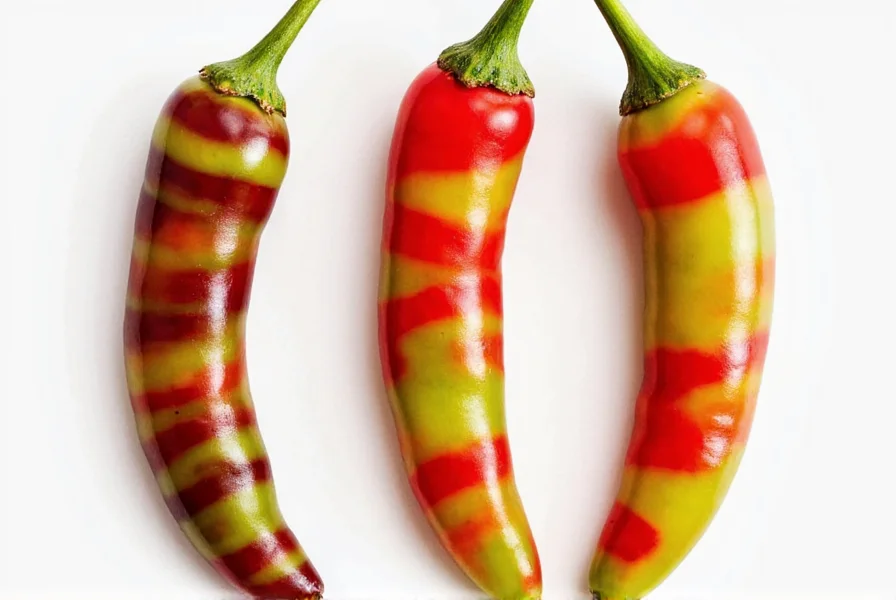
This thin-walled pepper, also known as the "Cuban" or "French" chili, has a light peppery bite with faint citrus undertones. Great for sautéing or tossing into salads where texture matters more than heat. Use it in place of Anaheim chiles when you want a subtle warmth without overpowering your dish.
4. Bell Pepper – Zero Heat Hero
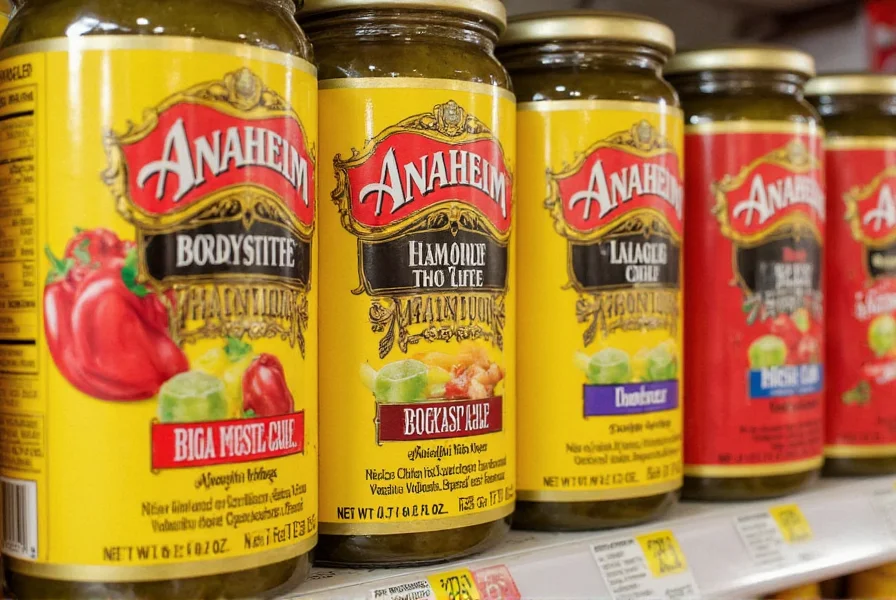
Need zero heat but still want that vibrant green crunch? Green bell peppers mimic the texture and visual appeal of Anaheim chiles without any capsaicin. They do lack the signature chile flavor, so consider adding a touch of smoked paprika or ground cumin to replicate that earthy depth.
5. Guajillo – Bold Flavor Bomb (Dried Version)
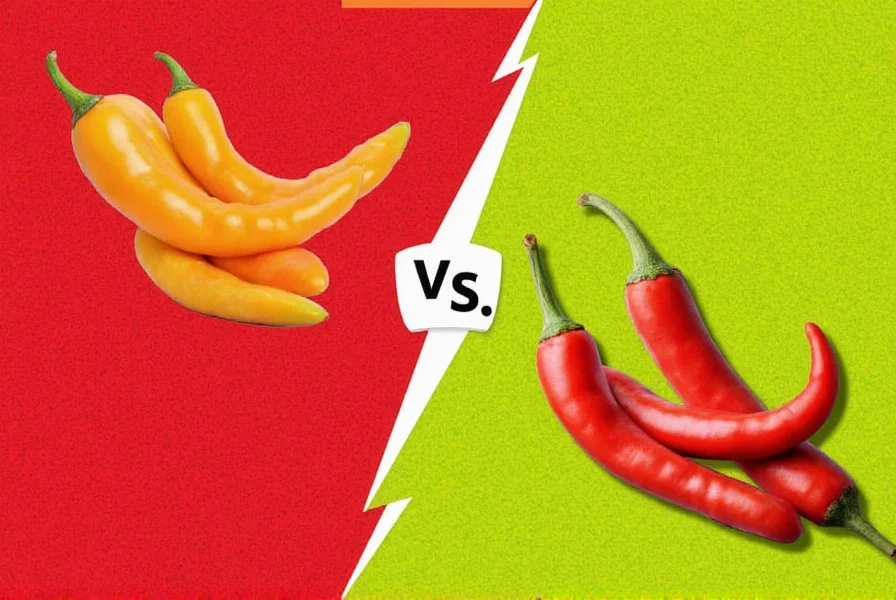
Guajillo chiles are often used dried in Mexican cuisine and bring a deep, fruity flavor with moderate heat. If you're using them in place of Anaheim chiles, soak them first, then blend into sauces or grind into rubs. Best suited for slow-cooked dishes like moles, braises, or adobo marinades.
Spice Level Comparison
Let's face it — not all substitutes hit the same heat level. Here's a quick chart to help you visualize the differences:
| Pepper | Scoville Heat Units (SHU) | Heat Level |
|---|---|---|
| Anaheim | 500–2,500 | Mild |
| Poblano | 1,000–2,000 | Mild to Medium |
| Jalapeño | 2,500–8,000 | Medium |
| Cubanelle | 100–1,000 | Very Mild |
| Bell Pepper | 0 | No Heat |
| Guajillo | 2,500–5,000 | Medium |
If you're sensitive to spice or feeding kids, stick to Cubanelle or Bell Pepper. For a bit of excitement, go with Jalapeño or Guajillo. If you just want a close match, Poblano wins hands-down.
Best For Different Dishes
Choosing the right substitute also depends on the type of dish you're making. Let's look at which alternative works best where:
| Dish Type | Best Substitute | Reason |
|---|---|---|
| Chiles Rellenos | Poblano | Holds shape, robust flavor |
| Salsa | Jalapeño | Great texture, adds zesty kick |
| Stuffed Peppers | Cubanelle | Mild heat, holds stuffing well |
| Roasted Veggie Dish | Bell Pepper | Texture + color match |
| Mole Sauce | Guajillo | Deep flavor + slight heat |
Buying Guide: Choosing Your Anaheim Chile Substitute
When shopping for a substitute, consider these factors to ensure you get the best match for your recipe:
Flavor Profile
- Smoky/Earthy: Go for Poblano or Guajillo
- Fruity/Floral: Try Cubanelle or dried Guajillo
- Clean/Crisp: Jalapeño is your friend
Heat Tolerance
- Low Heat: Cubanelle, Bell Pepper
- Moderate Heat: Poblano
- Spicy Kick: Jalapeño, Guajillo
Texture & Cooking Method
- Stuffing: Poblano, Cubanelle
- Raw: Jalapeño
- Roasting: Bell Pepper, Poblano
- Blending: Guajillo (dried), Jalapeño
Pro Cooking Tips with Anaheim Chile Substitutes
- Remove Seeds for Less Heat: Even jalapeños can be tamed by scraping out the seeds and membranes.
- Soak Dried Chiles First: If using Guajillo or other dried chiles, soak them in hot water until soft before blending.
- Roast Before Using: Roasting enhances flavor, especially for Poblano or Bell Peppers.
- Adjust Seasoning: Some substitutes may alter the salt or spice balance of your dish — taste as you go!
- Pair With Citrus: Brighten any chile with lime juice or lemon zest for balance.
Frequently Asked Questions
Can I use poblano instead of Anaheim chile?
Yes! Poblanos are a great substitute and offer a richer flavor with similar heat.
Are Anaheim chiles the same as jalapeños?
Nope — while both are green chiles, jalapeños pack more heat and have a crispier texture compared to the milder, fleshier Anaheim.
Can I use bell peppers as a substitute?
Absolutely, though they won't bring any heat. Add a pinch of smoked paprika or cumin to boost flavor.
What's the mildest Anaheim chile substitute?
Cubanelle is your safest bet for minimal heat with a hint of peppery flavor.
What dried pepper replaces Anaheim chiles?
Guajillo or dried New Mexico chiles are your best bets for dried alternatives.
How do I adjust recipes when substituting different peppers?
When substituting, consider the heat level difference. For hotter peppers like jalapeños, use half the amount called for. For milder options like bell peppers, add complementary spices like smoked paprika to maintain flavor depth. Always taste as you cook and adjust seasoning accordingly.
Can I use canned green chiles instead of fresh Anaheim?
Yes, canned green chiles (often labeled as "mild green chiles") are typically made from Anaheim peppers. They're a convenient substitute, though slightly less vibrant in flavor. Use a 1:1 ratio, but drain excess liquid before adding to recipes.
What's the difference between Anaheim and New Mexico chiles?
Anaheim and New Mexico chiles are closely related but have key differences. New Mexico chiles are slightly hotter (500-7,000 SHU) and have a more earthy, raisin-like flavor when dried. Anaheim chiles are milder (500-2,500 SHU) with brighter grassy notes. They can often be used interchangeably, but New Mexico chiles provide deeper color and flavor in sauces.
Conclusion: Fire Up Your Kitchen with Confidence
You no longer need to panic when the recipe says "Anaheim chile" and your spice drawer draws a blank. With our list of top substitutes, you've got the tools to swap smartly and stay creative in the kitchen.
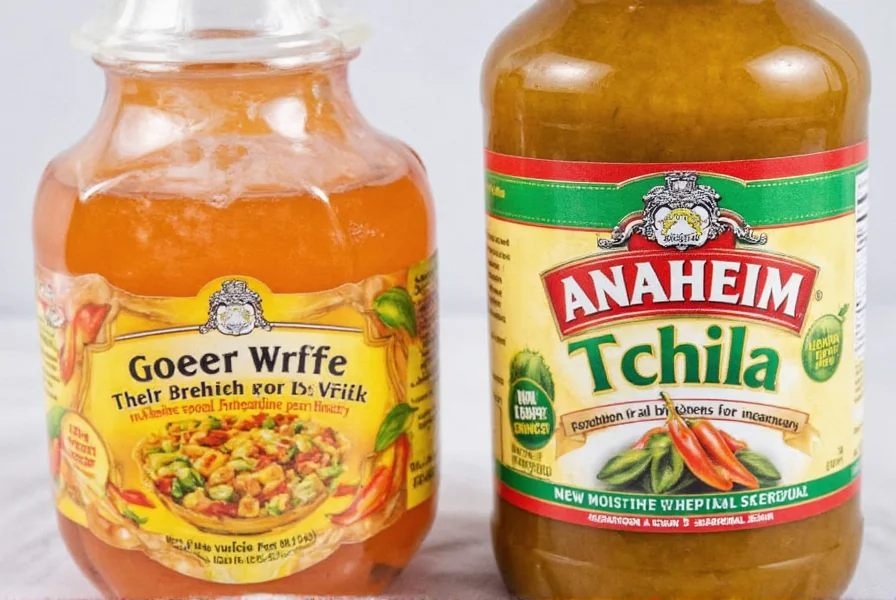
Whether you choose the earthy richness of Poblanos, the zippy flair of Jalapeños, or the gentle sweetness of Cubanelles and Bell Peppers, you'll find a perfect match for every dish and mood. And let's be honest — experimenting with substitutions is half the fun of cooking!
So go ahead… reach for that jar of Guajillos, grab a bunch of Poblanos, or toss in a few Cubanelles. The spice adventure awaits!

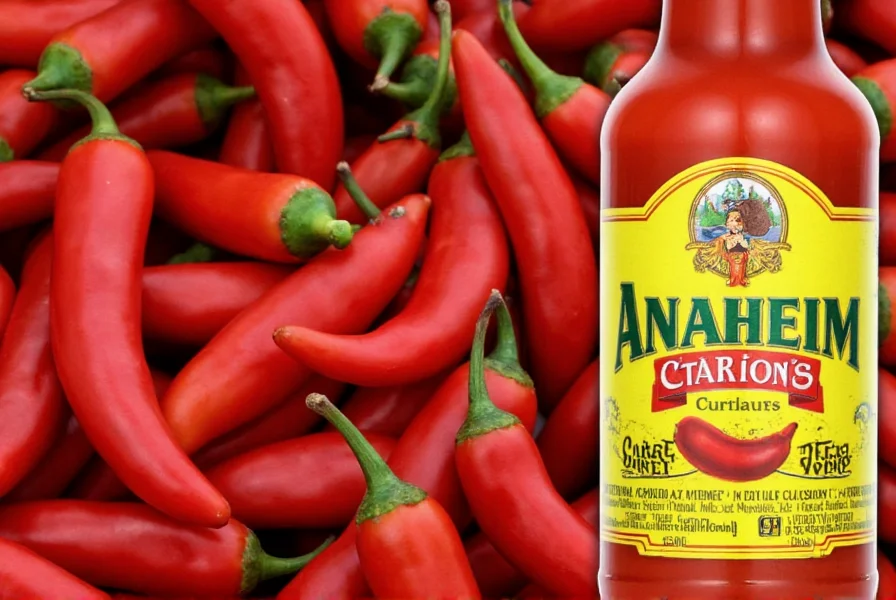









 浙公网安备
33010002000092号
浙公网安备
33010002000092号 浙B2-20120091-4
浙B2-20120091-4